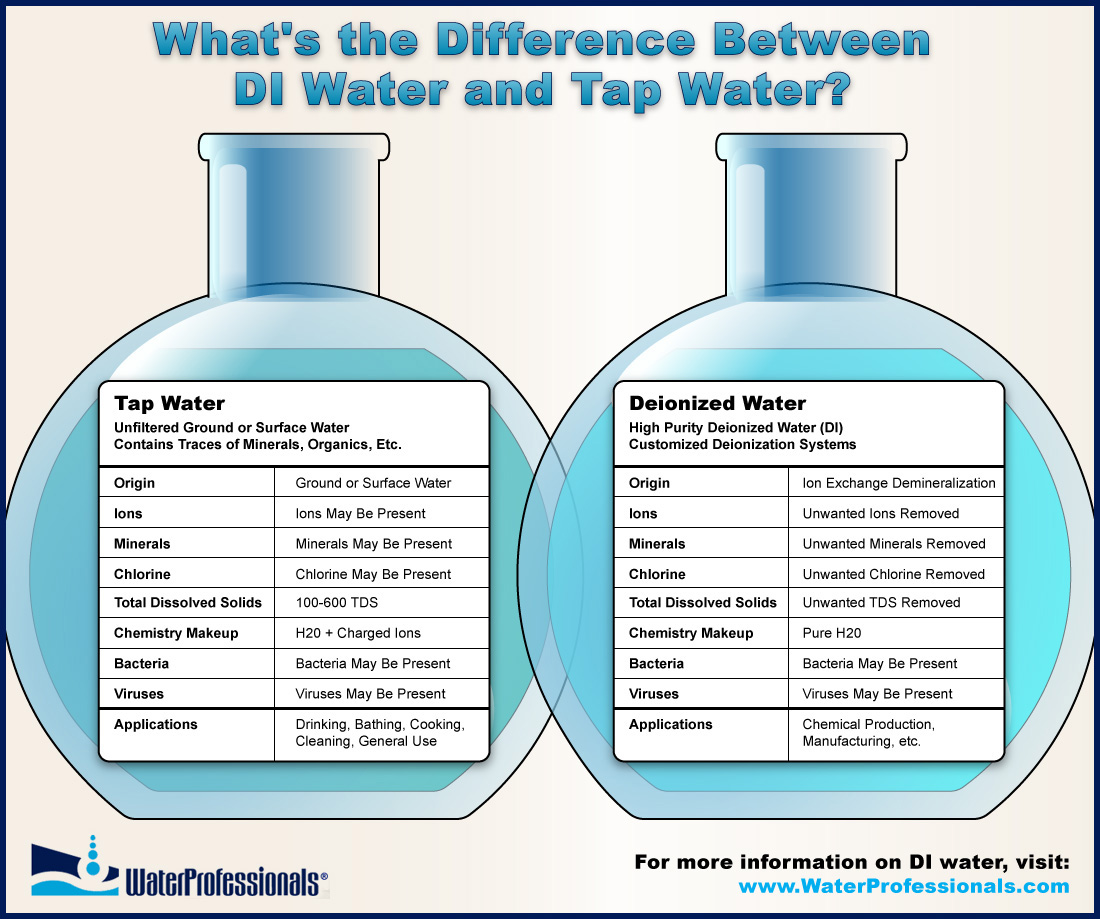Demineralization and deionization are frequently accomplished with in-plant deionizers that consume caustic and acid. The deionizers regenerate automatically at pre-established intervals and discharge highly concentrated amounts of caustic and acid into the waste stream. The deionization systems require frequent maintenance and are expensive to purchase, making this form of demineralization relatively costly.
Portable Exchange Deionization (PEDI), commonly referred to as “Service Deionization“, use tanks which contain a special ion exchange resin. The tanks are plumbed into your existing system using flexible connectors. After the ion exchange resin has been exhausted, the existing tanks are exchanged for new tanks that have been regenerated off-site.
There are many advantages to demineralization through PEDI, including:
- No maintenance costs. Once exhausted, resin tanks are exchanged by WaterProfessionals®.
- OSHA hazardous chemical training is not required because no hazardous chemicals are used. No special containment or diking is required. Waste treatment is not required.
- You pay per 1000 gallons of demineralized water used or per tank exchange, the choice is yours. This means no upfront capital investment.
- Portable Exchange Deionization is flexible enough to meet a range of water quality and flow requirements. Water quality from 50,000 ohm-cm to 18,000,000 ohm-cm. Flow rates from 0.5 gpm to 500 gpm.
- Metal recovery and waste treatment: Portable Exchange Deionization can eliminate heavy metals from the waste stream to meet discharge permit requirements set by the NPDES or other organizations. All regeneration takes place at licensed resource recovery facility, and the recovered metals are sold for recycling.
Water is a universal solvent. As precipitation passes through the earth, minerals are dissolved by the water. For this reason, groundwater almost always contains some form of dissolved minerals. When groundwater is used as source water, deionization is often required to make the water suitable for industrial uses.
deionization is necessary in cases where source water must be essentially free of total dissolved solids (TDS).


